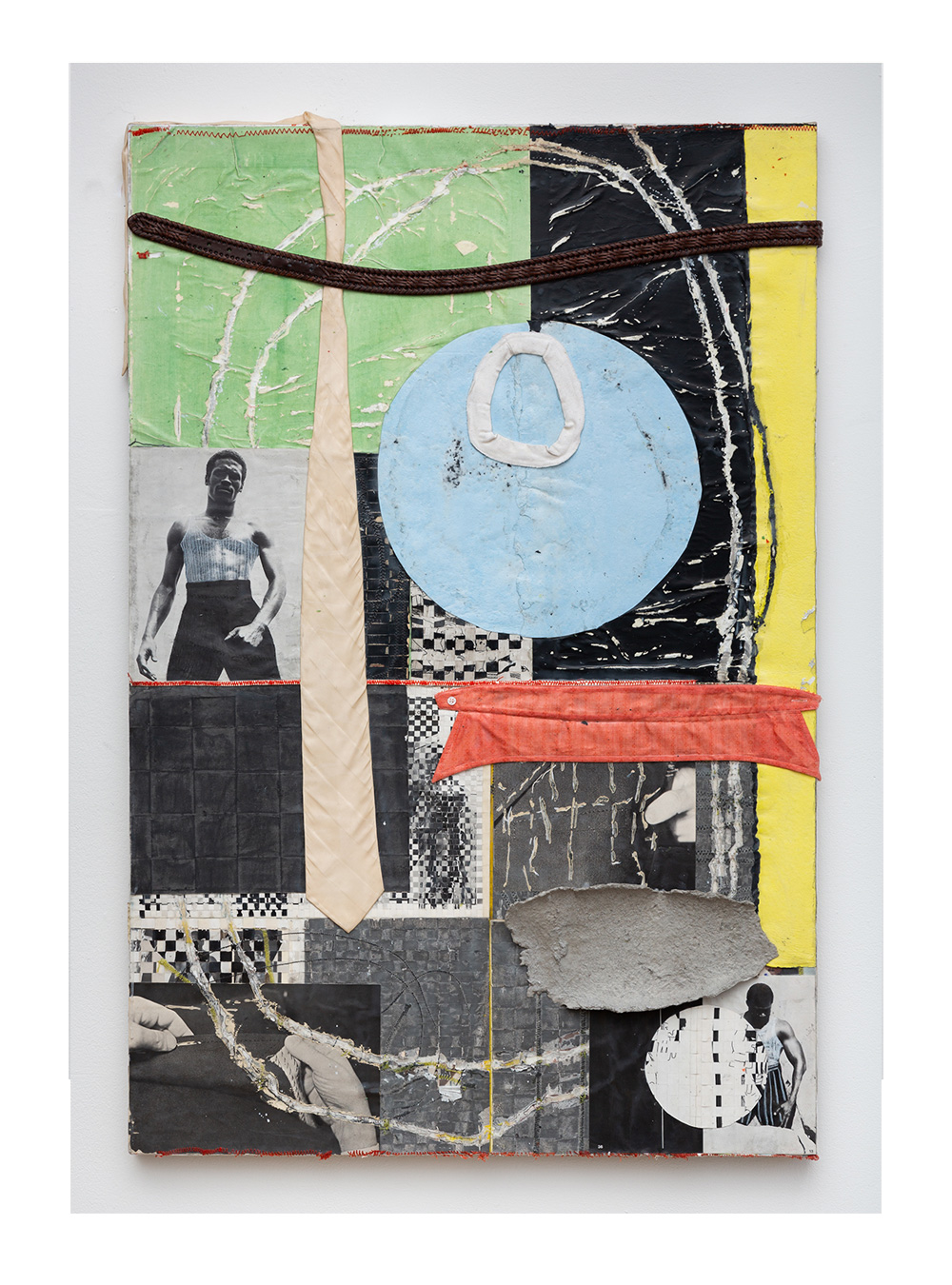Someone’s Responsible for All This
Adrianne Bonilla Stankus
The story came to Arturo as a needy mutt whose progenitors were surely premonition and déjà vu, but when he tried to grab it, it ran from him and into the forest. The story of The Girl remained in his periphery, uselessly orbiting outside the finite reach of his skill, an ugly and unknowable planet that reeked, no doubt, of menstrual blood. All he had were images, and sometimes not even that, moving around him as he walked around his city. He had been torn from South America by countless trans-border wars, wars that forced his parents—strangers still—to flee their respective countries for New York. He came in pieces: part egg, part sperm, and was robbed of ever really knowing the vast, gloomy lands that were his birthright.
He sensed that the missing girl was the definitive story of his life and if he did not rescue her and write it, the years of endless excavation, of never allowing a wound to close, would have been wasted. He was only twenty-six and hated himself but wore a helmet of self-absorption that made him reach for the keyboard instead of a gun.
Once he became aware of The Girl, however, his life, which had been put together in the dark, began to disintegrate. She had dark hair that came loose when she ran, and which he sensed smelled of lavender. She isn’t teasing me, he wrote, rather I must appear to her as fleeting as she is to me, only a cold breeze that acts as a warning, telling her danger moves her way.
Arturo confesses to his friend, over watery Tecate, that he is haunted by the vision of a girl being chased. Rodolfo leans closer, to dissimulate that he has just passed gas and because he’s curious too.
“I see her sometimes, a flash of her, but when I look closely it’s just some stranger, hurrying down the street, a frame too broad to be hers, turning the corners of my mind.”
Arturo has the good fortune of Rodolfo, his friend since childhood with whom he had learned most things, trading novels back and forth, masturbating next to one another, all the sweat and hope of boyhood passed between them. To arrive here, Rodolfo’s parents crossed an interminable desert guided by a coyote and the cold moon. Arturo’s parents flew, a small difference that could have opened up into a universe but was cushioned by their friendship and kept from expanding.
“Have you looked into it? Maybe she’s the ghostly consequence of some horrific crime.”
Arturo considers this and wonders if, given the chance, he would save The Girl. Rodolfo downs his drink and wipes the sweat from his face; he sees flashes of the thin-necked girl in the dirt, lake water washing over her, his boots sinking into the fresh mud. “No more talking about dead girls,” he tells Arturo, and asks the bartender to put the game on. The beer blurs their thoughts and eventually the conversation narrows to only the things immediately in their proximity: a score of 1-0 (those pelotudos Argentinos, a disappointment again), the women giggling and scheming around them, and the awful smell which they both add to and blame the other for.
Listen! I’m not the kind of narrator who, apropos of nothing, breaks into the story. Not normally, anyway, but I’m too drunk for elegant transitions. It’s just that this is my song; it strikes the right balance between fun and death. A nastiness infuses the otherwise wholesome beat—a grimy reggaetón dembow is moving through this gentrified city wasteland and I’m seduced. Besides, I’m tired of preemptively mourning, of penny pinching my emotions for fear of being detected in the story when really, let’s face it, my voice is oppressive. Let’s see if I can’t take Arturo out for a dance, if we can’t grind into each other until something interesting finally comes out.
I approach the boys. Rodolfo grabs me roughly by my hips, and fear tightens all of my muscles. I pull Arturo in with us, yanking him by his large calloused hands, and we all move our hips to the beat, me between them, drenched in their beer, making a spectacle of ourselves in some dingy Brooklyn bar, so far from our native continent—does it even still exist?—that should we die here few would be capable of claiming the bodies.
Thankfully, I wake up alone, still mostly unknown to Arturo, our mouths having only briefly, drunkenly, touched. It’s unethical of me, but I can’t help it.
When the boys finally wake up, they briefly discuss me, though neither of them can remember my face. It bothers me, but it doesn’t surprise me. Finished eating, Rodolfo goes into his room and shuts the door and Arturo listens for a moment as the air conditioning turns on, to allow for privacy, and he imagines his friend, brother really, opening his laptop and spitting into his left hand. He laughs a little and leaves the house, sidestepping his friend’s muddy boots, hoping to run into The Girl, or better yet to have her come to him as a poem, as an apple falling from the tree, as an angel whose winged limbs seem stuck in a horaltic pose as she descends and lands right on his cock.
Arturo senses that The Girl is near him, maybe being kept in the next town over. He feels her running, the phlegm gathering in her nose and throat because she is naturally slender and thus unaccustomed to the exercise, her face reddening, obscuring her beauty with fear. He almost hears her scream, but the noise comes through muffled, flattened by time or by the many walls that stand between them.
He searches: body found in Queens, female, beautiful. He finds: BREAKING NEWS. Body Found in Bayside’s Oakland Lake. He clicks and scans. The body of a woman in her twenties was found submerged. He feels he, too, is drowning. He sends the link to Rodolfo and writes ??? in the body of the text.
Rodolfo pauses to read Arturo’s message, sweat sliding down his face slowly, like the hand of a mother tracing her child’s cheek. The darkness of the article permeates his orgasm, and he finishes to the image of himself standing over the body of a young girl, her blood on his hands, and then as his mind turns into a blank screen post-release, he feels guilt and disgust, another pocket of himself having been revealed to him, and perhaps to Arturo.
Arturo finds himself annoyed, not knowing why, the unpleasantness suddenly washing over him. He has been unable to write for several months now and is angry at his more prolific, if less talented, former classmates. Arturo’s father, who swore he would have been an Indian warrior had it not been for the fucking Spanish, had foisted literature upon Arturo at a young age, and he had followed this magnificent burden all the way through college. Unfortunately, like so many, he was entombed daily in an office, sneaking a little writing under the guise of a particularly wordy email. All to say, we were both very excited by the promising, if temperamental, appearance of The Girl.
Arturo sits, curled on a bench, looking out at the dismal lake, imagining The Girl swimming, the water holding her body inside of it almost delicately, her arms balletic as they move her forward, the water miraculously clean, and her eye, which he zooms in on, appears to be a smaller lake, in which a car is submerged. He sleeps, and danger blows around him like a breeze, bending tree branches and slamming shut imagined doors. He dreams:
Of walking with his father along the streets of his native Colombia, through some suburban neighborhood with looming houses of indeterminate origin, some patchwork structure with white columns plucked from a movie about the American South. They’re walking at night, carefully, a bit scared, though neither show it, through a conflict-ridden Colombian century, and the sounds of gunshots and suffering are heard distantly. The night is balmy, and Arturo knows, instinctively, that he is home, that these streets he is walking are known to him somehow; a map inside of him that was folded many times until it was the size of a note passed between pupils.
Father and son walk along the plaques dedicated to conquistadores-turned-founders of cities, in a land that belonged to them only in principle, a land reduced to the production of certain stimulants. Arturo takes photos with a disposable camera that briefly lights up the empty streets, the houses grander than the trees. I’ve never been to Colombia myself, displaced like so many of my compatriots. Arturo’s father maneuvers him, warm hands on his shoulders, until they reach the safety of a car.
Did you know I once found a murdered girl? The bodies are numerous and as such cancel each other out. How many can we reckon with? One per story; two? Arturo is chasing someone akin to a scent, in that she lasts only in his mind, which makes him a dog, having caught a whiff and now needing to go search for the body.
He writes: Do you see the raccoon rooting through the trash?
I improve: which is to say, memory.
Someone documented all instances of dogs barking in literature; in other words, all gestures outward. This too is a gesture outward, an attempt to suffuse a line with the universe. Everyone wants to be important. No one more than me.
I could go one way, or another. Genius or killer. A street over, in an old house, a dog barks at no one and that night his owner dreams of a benevolent ghost. A masked man enters the house in socks and roots through her jewelry. The Girl sees the young man and goes to scream in the exaggerated style of a horror movie. He overtakes her. The dog is quiet.
Every time a certain friend of Arturo comes over, she claims to see the outline of a girl haunting the apartment. “Only bad people have that kind of vision,” Rodolfo tells her. Like Arturo, I never see anything except what I want to.
Arturo asks for a glass of wine, Chilean. As a rule, he supports the exports of our continent blindly. The Spanish bartender rolls his eyes as he pours the drink. I order the same, but Arturo pays me no mind, instead chatting up a blonde girl seated to his left. I don’t want to be melodramatic but I consider calling him a traitor, slapping him. The Spaniard smiles and tells me I’m pretty, and I tell him about the time I saw two girls slamming an octopus against a rock, repeatedly. The result was more tender meat, a shattered skull. There is a chill in the blood of Mediterraneans, and miles and years away it spooks me still.
The Spaniard objects to my generalizations, and I can sense Arturo turning toward me, listening, the blonde girl turning out to only be a wisp of smoke.
I continue, “I wandered the cobblestone streets of that Spanish town for hours, and no one noted the lost girl. It was so long ago, but it’s become something of a myth for me.”
I turn to Arturo. “Did you know I once found a murdered girl? I was only a child myself, racing around the Moorish remnants, the tourists, the endless sand.”
Arturo plays it cool, though something like recognition is coloring his face. I tell him, “the murdered girls are infinite, as you know.” I leave for the bathroom to rub the liner from my eyes.
I climb the barstool and ignore Arturo, who is looking at me suspiciously, speaking only to the bartender. “The pink walls of your bathroom remind me of the seaside motels I would shower in, in my youth, the fresh water still having the ocean’s brute force in it and outside, resting on the bed, was my father—” and here, I finally gesture toward Arturo, “or was it Arturo’s father, dark legs crossed, soccer playing on the television?”
“Stop it!” Arturo jabs my arm as he says this.
“Here, let me get this round,” I say and touch his knee.
I must look incredible to them, a young South American girl talking about roaming the streets of Andalusia, mysteriously and boldly, as if she were a protagonist of Almodóvar’s, as if she were not a crumpled body found near the dunes but instead the very one the camera would focus on, the expressive eyes, the perfect plum mouth, the knowing look, the leading lady whose beauty enchants the audience, whose wit bewitches.
“I remember the smell of piss and how the wind would lift it from one sense to another, and suddenly you could taste it.” Someone groans, in the present; the wisp of smoke drops her drink and the glass and liquid splatter everywhere.
“I felt the appeal of my childish body on the men around me, the orange trees bending toward me in the breeze—that breeze!—I walked, lost, protagonist of my story, beautiful interlocutor of others. Then it got dark, and everyone around me was unknown to me, even the Spanish unfamiliar, full of lisps and staccato.” The Spaniard chuckles as he sweeps up the glass.
“I ran along the beach, and this was when I nearly stepped on the body of a girl, who I did not immediately recognize as dead, who was naked, who looked just like The Girl, the one from Arturo’s dreams, who in turn looks just like me. She, I would later find out, was an immigrant from Ecuador, part of a wave of migration of Latin Americans to Spain, where they were met with nationalism and repulsion.” Arturo and I turn toward the bartender, the irony thickening the air like humidity. He shrugs.
“I stared into my own dead face. I looked at my small body, cold, clearly violated. I looked down at myself, like a bird, or God, and I screamed and screamed, and that was when the fishermen came running, shouting, and later when my father finally found me at the station, he wept.”
The crowd gathered around to hear my story is happy to hear that I was found safe, which of course is obvious, considering I’m around to tell it. Who is the speaker and what power do they seek over the story? I want all the power, I tell them, and they laugh because my face is beautiful and foreign, and Arturo stares at me and I know what he’s thinking, that I stole his story, but all good stories are about The Girl in various stages of strength. Besides, I’m the better writer.
“You’re not worthy,” I tell him, and he shakes his head, but he can’t rid himself of The Girl, or of me.
“What’s wrong with you?” Arturo says before leaving.
He dials Rodolfo and tells him, “I’m getting anxious that I won’t find her, but somehow, I know that I will, I know I’m getting closer. I enter rooms and bars and turn down dark streets and I can almost see her footprints, can almost reach out and touch her arm, can hear her gentle laugh tearing through space. She’s here.”
Rodolfo knows this to be true, having taken her body to the lake himself.
Back home, Arturo sits on his bed exhausted. All of this journeying, and for what? To watch her walk down the street and away from him, a view he’s had hundreds of times. He’ll never get this close again. Something in him snapped with fear when he got near, the air around her was electric to the point of sedation. He writes: I couldn’t touch her because I can’t have her. There was only a pocket-sized opening, one night, years ago, when I could have reached out and grabbed her, kept her safe, for good, but instead I kept my hands over my eyes because I wasn’t ready, and then the moment, which I pictured to be a black hole, an abyss, closed right up.
He goes to knock on Rodolfo’s door but can’t bring himself to touch it.



